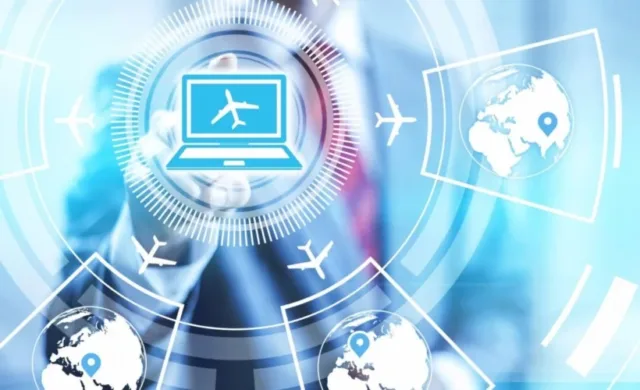The global travel and tourism industry has undergone a metamorphosis in recent decades, propelled by the integration of technology into its core operations. This transformation has revolutionized how individuals traverse the globe, with artificial intelligence (AI) taking center stage in reshaping the landscape of travel. From personalized travel assistants to virtual reality escapades, the traditional barriers to exploration are crumbling, paving the way for a new era of tourism.
The Digital Evolution of Travel and Tourism
The dawn of the digital age has ushered in a shift in the travel and tourism sector, marked by unparalleled accessibility, bespoke experiences, and a plethora of information readily available to travellers. The days of laboriously visiting brick-and-mortar travel agencies or spending hours on hold for reservations are relics of the past. Online booking platforms have democratized the booking process, affording travellers the luxury of perusing options, reading reviews, and confirming arrangements with a few clicks. Mobile applications further augment this convenience, empowering individuals to manage bookings, access itineraries, and receive real-time updates effortlessly.
Virtual Tours and Augmented Reality Experiences
Virtual reality (VR) and augmented reality (AR) technologies have catalysed a revolution in destination exploration, transcending geographical barriers. Virtual tours enable prospective travellers to immerse themselves in 360-degree panoramas of attractions, hotels, and landscapes, facilitating informed decision-making regarding their next excursion. Conversely, AR applications enhance the physical travel experience by superimposing digital overlays onto the real world, furnishing interactive guides and historical insights about visited locales.
Impact on Accessibility and Convenience
The digital metamorphosis has democratized travel, rendering it more inclusive and accessible to a diverse array of individuals. Those with disabilities now leverage accessible travel apps and VR tours to meticulously plan their journeys and preview destinations in advance, ensuring their experiences are not just enjoyable but also accommodating. Furthermore, technology has streamlined logistical intricacies, from digital boarding passes and hotel check-ins to GPS navigation and language translation applications, culminating in a seamless and stress-free travel milieu.
Looking Towards the Future: Harnessing Technology for Optimal Advantages
As we gaze towards the horizon of travel and tourism, it becomes imperative to discern the opportunities that lie ahead and how we can leverage technology to maximize our collective benefit. Here are some salient considerations for the future:
- Sustainable Tourism Initiatives: Technology can play a pivotal role in fostering sustainable travel practices, from reducing carbon footprints through virtual meetings and conferences to promoting eco-friendly accommodations and transportation options.
- Enhanced Personalization: AI algorithms can analyse vast troves of data to curate bespoke travel experiences tailored to individual preferences, thereby fostering deeper connections between travellers and their destinations.
- Augmented Reality Integration: As AR technology matures, its integration into travel applications can revolutionize on-the-go exploration, offering real-time translations, historical context, and interactive navigation to enrich the travel experience.
- Blockchain for Secure Transactions: Blockchain technology holds promise for enhancing security and transparency in travel transactions, facilitating seamless payments, identity verification, and loyalty programs while mitigating fraud and data breaches.
- Cultural Preservation: Virtual reality simulations can aid in the preservation of cultural heritage sites by creating immersive digital replicas, thereby safeguarding these treasures for future generations to appreciate and explore.
In conclusion, the symbiotic relationship between technology and the travel industry continues to redefine the parameters of exploration and adventure. By harnessing the power of AI, virtual reality, and other cutting-edge innovations, we can forge a future of travel that is not only more accessible and enjoyable but also sustainable and enriching for all.









